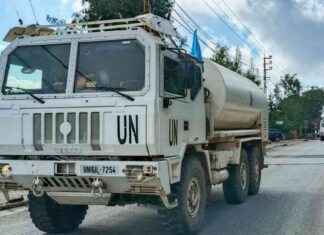This year has been revived in Chile, a former parliamentary motion to rename the international airport of Santiago with the name of the Nobel prize of Literature Pablo Neruda (1904-1973). Despite the fact that in the Congress, the measure has some support, its processing has generated controversy because there are feminists who criticise the bad behaviour of the writer with the women, which includes the abandonment of a sick daughter and a rape told in his book posthumous memories, I Confess that I have lived. The voices of opposition to the initiative have included a proposed alternate name for to rename the airfield of the chilean capital: the of the also poet and also Nobel prize of Literature Gabriela Mistral.
MORE INFORMATION
the Glory and misery of Pablo Neruda Jan Fabre, the creator that went beyond the end
The project to which Neruda, one of the faces more recognizable of Chile throughout the world, give your name to the airport of Santiago was originally introduced in 2011. The text argued: “The great chilean poet, is considered among the best and most influential of his century, being called by the novelist Gabriel Garcia Marquez ” the greatest poet of the TWENTIETH century in any language”. However, since it was resurfaced the initiative last month, the feminist organizations have refused it, ensuring that, at the height of the movement, I Too, would give a bad image of the country abroad.
The controversial writing of the memories of the poet relates that forced sexually to a young maid-servant in Ceylon (today Sri Lanka), where he held a position diplomat in 1929. In style explicit, Neruda account that the girl ignored him and then he took her to his room to finish with a meeting that was “like that of a man and a statue. She kept the eyes open all the time, completely unconscious.”
Among those who are critical of Neruda is a journalist and member of the Humanist Party (left), Pamela Jiles, who has declared: “these are Not times to pay homage to an abuser of women, who abandoned his sick daughter and confessed to a rape, less as a country’s image,” added Jiles, who insists on the alternative proposal of calling the airport Gabriela Mistral. In addition to the alleged sexual assault, Neruda is marked by Malva Marina, his daughter, who Trbet was called “vampire girl of three kilos”.
This story appears in a fictionalized account called Mauve, from the poet’s Dutch Make Peeters, in which it is told that the girl was born in 1934, with hydrocephalus, and died only eight years after abandoned by his father. When he spread the story in 2016, the Fundación Pablo Neruda, which preserves the heritage of the author, issued a note in which they claim that the separation was by common agreement and that “Neruda was to see his daughter the last time I was able to do so, in 1939, on the last trip that he was able to make it to Europe, to fly to the Spanish republicans in Winnipeg”.
“That [the alleged violation] is going to come out in the discussion and will continue to be part of the debate. It is a sensitive issue,” admits the socialist Marcelo Díaz, president of the Culture Commission. And he adds: “they Are history sensitive, but it is honouring the work. If you have felt this kind of questioning, that does not leave of side that Pablo Neruda is still one of the poets most relevant not only for Chile, but is of the world”
But in addition to the artistic legacy, the project’s promoters stress the political importance of Pablo Neruda, who was a militant communist, senator, diplomat, and, in a last stage, resigned to a precandidatura presidential election in favor of Salvador Allende. The Nobel prize winner died a few days after the overthrow of Allende by the military dictatorship headed by Augusto Pinochet. As reported at the time was for a cancer of the pancreas, but surveys recent known in 2017 discarded that version and some experts point to a murder.
While it resolves the dispute, the international airport of Santiago will still be called Comodoro Arturo Merino Benítez, the father of aviation in chile. For the change to be effective, the idea must still pass several stages in the Chamber of Deputies and then in the Senate. Another of the questions that weigh on the initiative is the cost that would have for the State to make these modifications.







